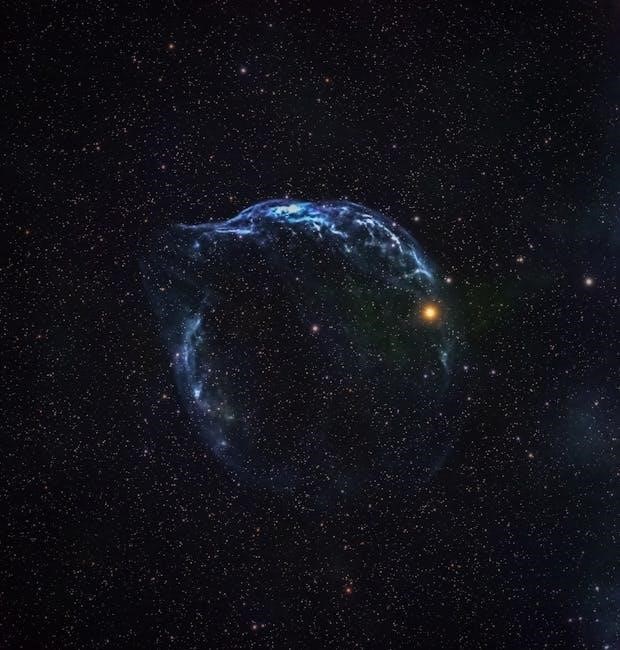
year 7 science textbook pdf
Year 7 science textbooks are essential resources for students transitioning to secondary education, providing comprehensive coverage of biology, chemistry, and physics. They are designed to engage young learners with clear explanations, interactive activities, and real-world applications, ensuring a strong foundation for future scientific exploration. These textbooks align with curriculum standards, offering structured learning pathways and additional resources like digital access and practice exercises to support academic success.
Importance of Year 7 Science Textbooks
Year 7 science textbooks play a vital role in shaping students’ foundational understanding of scientific concepts. They provide structured learning materials that align with curriculum standards, ensuring students grasp key ideas in biology, chemistry, and physics. These textbooks are designed to foster critical thinking, inquiry-based learning, and problem-solving skills, which are essential for academic success. By using engaging language and interactive activities, they cater to diverse learning styles, making complex topics accessible. Additionally, they prepare students for higher-level science studies by building a strong knowledge base and promoting scientific literacy. Regular use of these textbooks helps students develop confidence and a deeper appreciation for science, setting them up for long-term educational growth.
Structure and Content Overview
Year 7 science textbooks are meticulously structured to cover foundational scientific concepts across biology, chemistry, and physics. Each chapter is designed to build progressively, starting with basic principles and advancing to more complex ideas. The content is divided into clear sections, often accompanied by diagrams, illustrations, and experiments to enhance understanding; Practical activities and exercises are integrated to reinforce theoretical knowledge, while real-world applications highlight the relevance of science in daily life. Digital access and online resources complement the printed material, offering interactive learning tools and additional practice questions. The textbooks also include revision guides and workbooks to support exam preparation and skill development, ensuring a comprehensive learning experience tailored to curriculum requirements and diverse learning needs.

Key Features of Year 7 Science Textbooks
Year 7 science textbooks feature engaging designs, clear language, and comprehensive practice exercises. They often include digital access, providing interactive resources to enhance learning and student engagement effectively.
Engaging Design and Clear Language
Year 7 science textbooks are crafted with engaging designs and clear, concise language to captivate young learners. Vibrant visuals, diagrams, and real-world examples make complex concepts accessible. Publishers like Pearson and Cambridge incorporate unambiguous features, ensuring clarity for students of all abilities. The language is tailored to promote understanding, while interactive elements and colorful layouts maintain student interest. These texts avoid jargon, using straightforward explanations to build a solid foundation in science. Additionally, digital access often complements the print material, offering multimedia resources that enhance engagement and deepen comprehension. This approach ensures that students can grasp scientific principles effortlessly, fostering a lifelong love for learning and exploration in STEM subjects.
Practice Exercises and Activities
Year 7 science textbooks include a wide range of practice exercises and activities designed to reinforce learning and develop critical thinking skills. These resources cater to diverse learning styles, offering structured worksheets, hands-on experiments, and interactive digital tasks. Publishers like Pearson and CGP provide comprehensive workbooks with practice tests, revision guides, and targeted questions covering biology, chemistry, and physics. Activities are often aligned with curriculum standards, ensuring students can apply theoretical knowledge to real-world problems. Many textbooks also include online resources, such as digital simulations and interactive quizzes, to enhance engagement. These exercises help students build confidence, identify areas for improvement, and prepare for assessments. Regular practice strengthens foundational skills, making complex concepts more manageable and fostering a deeper understanding of scientific principles.

Popular Publishers of Year 7 Science Textbooks

Popular publishers of Year 7 science textbooks include Pearson, CGP, and Cambridge, offering comprehensive resources with activity books, workbooks, and digital access to enhance student learning effectively.
Pearson Science Textbooks
Pearson Science Textbooks are renowned for their engaging design and clear, easy-to-understand language, making them ideal for Year 7 students. These textbooks adopt an inquiry-based approach to learning, encouraging students to explore scientific concepts through interactive activities and real-world applications. They cover key areas such as biology, chemistry, and physics, aligning with curriculum standards to ensure comprehensive understanding. Pearson also provides accompanying resources, including activity books and teacher companions, to support both students and educators. The structured content and practice exercises in these textbooks help students develop critical thinking and scientific skills, preparing them for further academic challenges. Pearson’s commitment to quality makes their textbooks a trusted choice for Year 7 science education.
Cambridge Lower Secondary Science
Cambridge Lower Secondary Science textbooks are designed to inspire and engage Year 7 students, fostering a deep understanding of scientific concepts. These resources are part of a comprehensive curriculum that progresses seamlessly into Cambridge IGCSE programmes. The textbooks are structured to cover biology, chemistry, and physics, with content divided into clear sections to enhance learning. They emphasize the development of scientific skills, such as inquiry and critical thinking, while connecting key ideas across disciplines. Digital access is included, providing interactive tools and additional materials to support student engagement. The Cambridge approach ensures students build a solid foundation in science, preparing them for further academic challenges and fostering a lifelong interest in scientific exploration.
Coverage of Scientific Disciplines
Year 7 science textbooks cover biology, chemistry, and physics, introducing foundational concepts like cells, forces, and materials; They integrate practical applications and skills, fostering scientific literacy and curiosity.
Biology, Chemistry, and Physics
Year 7 science textbooks comprehensively cover biology, chemistry, and physics, providing a balanced foundation for students. In biology, topics such as cells, ecosystems, and human biology are explored, fostering an understanding of living organisms. Chemistry introduces fundamental concepts like materials, their properties, and chemical changes, while physics focuses on forces, energy, and motion. These disciplines are interconnected, allowing students to build a holistic understanding of scientific principles. Practical activities and real-world examples enhance learning, making complex ideas accessible; The textbooks ensure students develop essential skills in observation, experimentation, and critical thinking, preparing them for further scientific study and fostering a lifelong curiosity about the natural world.
Connecting Scientific Disciplines
Year 7 science textbooks emphasize the interconnected nature of biology, chemistry, and physics, helping students understand how scientific concepts overlap and influence one another. For example, the study of ecosystems in biology relies on chemical processes, while the principles of motion in physics apply to living organisms. Textbooks often highlight these connections through cross-disciplinary topics, such as the chemistry of cells or the physics of biological systems. This integrated approach fosters a deeper understanding of science as a unified field rather than isolated subjects. By linking concepts, students develop a broader perspective and critical thinking skills, preparing them to tackle complex scientific challenges in a cohesive manner.
Alignment with Curriculum Standards
Year 7 science textbooks align with KS3 and Australian curriculum standards, ensuring comprehensive coverage of scientific concepts and skills. They are structured to meet learning objectives effectively.
KS3 Science Curriculum
The KS3 Science Curriculum for Year 7 is designed to develop a deeper understanding of scientific concepts across biology, chemistry, and physics. It emphasizes the interconnected nature of these disciplines, fostering a holistic approach to science learning. Students explore key topics such as forces, energy, cells, and materials, with a focus on practical skills and scientific inquiry. The curriculum encourages critical thinking, problem-solving, and collaboration, preparing students for further study. Textbooks and resources are tailored to meet these objectives, offering structured lessons, engaging activities, and assessment support; This framework ensures students build a solid foundation for future scientific exploration and real-world applications.
Australian Curriculum Science
The Australian Curriculum Science for Year 7 focuses on developing scientific literacy and inquiry skills. It introduces students to key concepts in biology, chemistry, physics, and Earth sciences, encouraging curiosity and critical thinking. Textbooks aligned with this curriculum use engaging language and real-world examples to explain complex ideas. They emphasize the importance of scientific investigations, data analysis, and evidence-based reasoning. Topics such as ecosystems, energy transfer, and chemical sciences are explored in depth. The curriculum also highlights the relevance of science in everyday life, preparing students for future challenges. Resources like workbooks and digital tools support interactive learning, ensuring students gain a comprehensive understanding of scientific principles and their practical applications.

Additional Learning Resources
Year 7 science textbooks often come with revision guides, workbooks, and online resources. These materials provide interactive activities, practice exercises, and digital access to enhance learning and understanding.
Revision Guides and Workbooks
Revision guides and workbooks are invaluable companions to Year 7 science textbooks, offering focused practice and reinforcement of key concepts. These resources typically include targeted exercises, past exam questions, and activities tailored to biology, chemistry, and physics. Many workbooks feature clear explanations, diagrams, and answers to help students assess their progress. Designed to align with curriculum standards, they provide structured support for revision and homework. Some workbooks, like CGP’s resources, offer weekly workouts and practice tests, ensuring comprehensive preparation for assessments. Additionally, digital access to workbooks and revision guides allows students to study flexibly, anytime and anywhere, making learning more accessible and engaging.
Online Resources and Digital Access
Online resources and digital access have become integral to Year 7 science learning, offering students and teachers flexible and interactive ways to engage with curriculum content. Many textbooks, such as Pearson Science and Cambridge Lower Secondary Science, include digital companions that provide virtual labs, videos, and quizzes to enhance understanding. These resources often align with curriculum standards, ensuring relevance and effectiveness. Digital access allows students to study anytime, anywhere, and collaborate with peers on shared tasks. Additionally, platforms like BBC Bitesize and online workbooks offer supplementary materials, such as practice exercises and revision guides, to support learning. These tools cater to diverse learning styles, making science education more accessible and dynamic for Year 7 students.
Year 7 science textbooks provide a solid foundation for scientific learning, combining engaging content with digital resources to support student success and future STEM endeavors.
Final Thoughts on Year 7 Science Textbooks
Year 7 science textbooks are indispensable tools for fostering scientific understanding and curiosity in young learners. They offer a balanced mix of theoretical knowledge, practical activities, and digital resources to cater to diverse learning styles. By aligning with curriculum standards, these textbooks ensure students develop essential skills in biology, chemistry, and physics. The inclusion of revision guides, workbooks, and online materials further enhances learning outcomes. Publishers like Pearson and Cambridge provide high-quality content, making these textbooks reliable and engaging. As students progress, these resources not only prepare them for assessments but also inspire a lifelong appreciation for science, equipping them with the skills needed for future academic and professional success.
Related Posts

indesit fast and clean dishwasher manual
Discover how to keep your dishes sparkling with our easy-to-follow Indesit dishwasher manual from the UK. Make cleaning effortlessly perfect!

x24 st andrews to glasgow timetable pdf
Get the latest 24 St Andrews to Glasgow timetable PDF for your journey. Plan your trip effortlessly with our up-to-date schedules!

application form for volunteer work
Find volunteer work in the UK. Apply for volunteer opportunities and make a difference with DKV Photos. Join today!